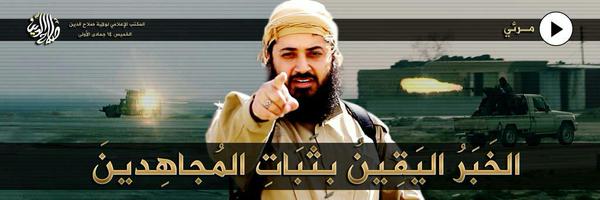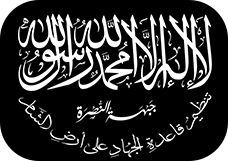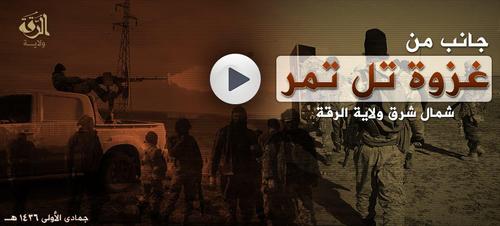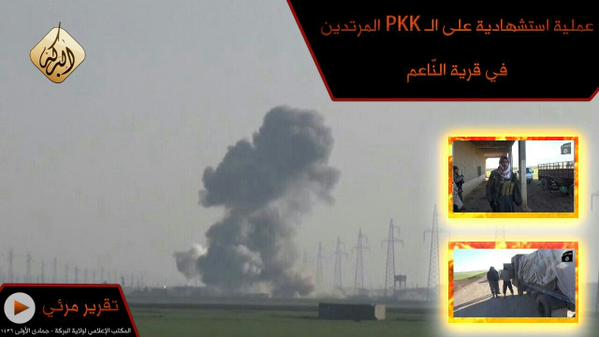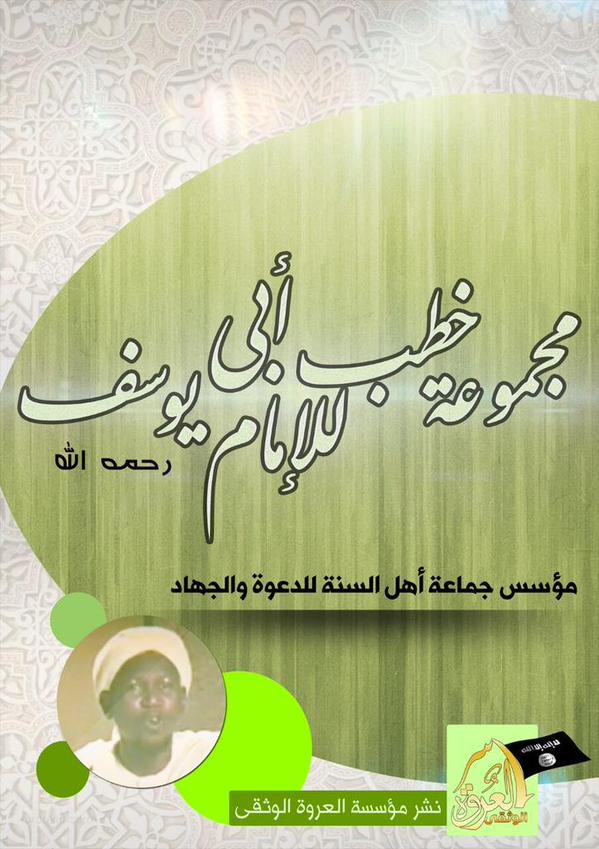The Clear Banner sub-blog on Jihadology.net is primarily focused on Sunni foreign fighting. It does not have to just be related to the phenomenon in Syria. It can also cover any location that contains Sunni foreign fighters. If you are interested in writing on this subject please email me at azelin [at] jihadology [dot] net.
—
Canadian Foreign Fighters in Syria: An Overview
By Amarnath Amarasingam
Public Safety Canada noted, in its 2014 terrorist threat assessment as well as later public statements, that the Canadian government was aware of at least 130-145 individuals “with Canadian connections who were abroad and who were suspected of terrorism-related activities” [1]. The Syrian conflict, as well as the more recent establishment of the “caliphate” by the Islamic State of Iraq and the Levant (ISIL), has captured the imagination of some Muslim youth from around the world, who now migrate into Syria and Iraq to wage jihad. According to the 2014 threat report, there are at least 30-40 Canadians who are currently fighting in Syria/Iraq [2], but based on interviews with community members in Canada, I would place the number closer to sixty.
While the number of Canadians traveling to Syria has been relatively low, compared to other Western countries like the United Kingdom or Belgium, Canadian fighters have been quite prominently featured by the English-language Al Hayat Media Centre of the Islamic State. Andre Poulin, from Timmins, Ontario, was the first Canadian to appear in Islamic State propaganda materials [3]. The slickly produced video, using stock footage of ski slopes and skyscrapers, runs for eleven minutes and shows Poulin (known as ‘Abu Muslim’) speaking directly to the camera. “Before Islam I was like any other regular Canadian,” he says. “I watched hockey. I went to the cottage in the summertime. I loved to fish.” As the video depicts, Poulin died in August 2013 during an attack on Mennegh Military Airport in Aleppo.
Another Canadian featured in early 2014 is Farah Shirdon from Calgary, Alberta. Shirdon, known as Abu Usamah, can be seen burning his Canadian passport and threatening Western powers [4]. Shirdon, who for a time was thought to have been killed, achieved greater fame when he conducted a Skype interview with Vice News in September 2014 [5]. The most recent Canadian to appear in an Islamic State recruitment video is John Maguire from Ottawa. Standing amidst rubble, Maguire, much like Poulin, implores Muslims in the West to make hijrah, or emigrate, to the Islamic State [6]. In the interim period between the Poulin and Maguire videos, the Canadian government joined the coalition of countries seeking to militarily dismantle the Islamic State. Accordingly, Maguire’s video is more confrontational, lambasting the Canadian government for its military aggression, and arguing that the attacks in Ottawa and Montreal in October 2014 should be seen as a natural consequence.
The Canadian Clusters
Since early 2014, I have been tracking and attempting to build a database of Canadian fighters in Syria and Iraq. In discussions with community members, friends and families, and journalists, we have confirmed the identities (albeit unevenly and incompletely) of around 35-40 Canadians who have traveled to Syria and Iraq. Of these Canadians, at least 5-7 individuals are women and 5-7 are converts to Islam. At the time of writing, at least 12 Canadians have died in the fighting – 7 from Alberta, 4 from Ontario, and 1 from Quebec. The vast majority of fighters are first or second generation youth who were born Muslim into a variety of South Asian and Middle Eastern backgrounds. As many scholars have noted, there is no one single profile of these individuals – their ethnic, cultural, economic and religious backgrounds are varied and diverse. What does seem to be a common characteristic of almost all Canadian foreign fighters is the role played by group dynamics and friendship networks in influencing their decision to fight abroad [7].
One of the first clusters that the Canadian public became aware of was in Calgary, Alberta. The Calgary cluster consisted of Damian Clairmont, Salman Ashrafi, Gregory and Collin Gordon, Farah Shirdon, as well as a few other individuals who have yet to be identified [8]. While they were friends, their biographical details are quite varied. Ashrafi was born Muslim, educated at the University of Lethbridge, held a prestigious job at Talisman Energy, and was married with a child at the time of his departure in November or December 2012. In November 2013, he engaged in a suicide attack in Iraq that would kill him and 40 others [9].
Clairmont, on the other hand, was a white convert, suffered from bipolar disorder, was a high school dropout, and was homeless for a time in Calgary. Clairmont and Ashrafi were close friends and part of a study circle with the Gordon brothers and several others. In interviews with their friends in Calgary, it is evident that Clairmont was the dominant personality, and influenced many of the other young men. Clairmont would leave Calgary in late 2012. He fought with the Al-Qaeda affiliated Jabhat Al-Nusra, and was captured and killed by the Free Syrian Army in January 2014 [10].
Another fighter with some connection to the Calgary study circle is Ahmed Waseem from Windsor, Ontario. Waseem’s story is particularly interesting because he came back to Canada after an injury sometime in 2013 [11]. After experiencing increased surveillance and having his passport seized by Canadian intelligence agents, he secured a fraudulent passport and has, according to his Twitter feed (now suspended), been regularly involved in fierce battles in Syria ever since.
While it was the Calgary cluster that initially made the news in Canada, Ontario is still home to a far greater number of foreign fighters than Alberta. Of the Canadian foreign fighters in Syria and Iraq, close to half are from Ontario. Perhaps the most intriguing case is the story of Andre Poulin from Timmins. Born in 1989, Poulin converted from Roman Catholicism sometime in 2009, noting in an online forum that he was “convinced through the scientific nature of the Qur’an that it was indeed the truth.” Poulin traveled to Syria in November or December 2012.
In the early stages of researching Poulin’s story, he did not seem to be part of any “cluster” – indeed, there are only a handful of Muslims in Timmins, a small city of 43,000 people with no mosque. Around 2011, Poulin told family and friends that he was moving to Toronto to be closer to Muslims. In Toronto, Poulin met with Muhammad Ali from Mississauga [12]. They had become friends in an online forum long before this first meeting. Once Poulin was in Toronto, they would see each other regularly. Ali was born in 1990 and went to Ryerson University to study aerospace engineering. He did not do well in school, however, and was kicked out a year later. It was then that he started asking questions about life and the afterlife, and found many of the answers in Islam, the religion of his upbringing. He went to online forums and began interacting with fellow Muslims – one of them being Poulin. Ali would leave for Syria in April 2014, several months after Poulin had died.
Poulin made other friends as well, and seems to have influenced them towards his way of thinking. At least four others from Toronto – Tabirul Islam, Abdul Malik, Noor, and Adib – became friends with Poulin and left for Syria around the same time he did. However, very little is known about them currently, except that some or all of them returned to Toronto in Feb 2013 – only to leave again in July 2014. Interestingly, on 13 July 2014, Muhammad Ali posted a screenshot of a text-message conversation he was having on his phone. The message read: “This is the friends of Omar Abu Muslim from Canada. We are in Turkey now and we want to know which way to get into Syria and join Islamic State.” From this message we can deduce that while Ali and Poulin were friends in Toronto, Ali likely did not know Poulin’s other Toronto friends until later. In discussions with some members of the Islamic State over social media, it seems likely that these four Canadians may currently be fighting in Iraq.
Despite these significant gaps we know quite a bit about the Calgary and Toronto clusters. As of this writing, community sources in Edmonton also confirmed that three Somali Canadians – brothers Hamsa and Hirsi Kariye and their cousin Mahad Hersi – had died fighting in Syria, and as many as ten may have departed from the city in 2014. In early March 2015, it was also reported that six individuals from Quebec (the Laval and Montreal areas) – Bilel Zouaidia, Shayma Senouci, Mohamed Rifaat, Imad Eddine Rafai, Ouardia Kadem, and Yahia Alaoui Ismaili – had departed to the Islamic State. There are also discussions in various communities across the country of possible clusters in a variety of major cities across Canada. At the moment, however, very little is known about them.
Conclusion: Foreign Conflicts, Local Implications
The involvement of Canadians in foreign conflicts has always been a cause for concern. There are fears that Canadians may contribute, either financially or otherwise, to violent social movements abroad. There are related fears that these individuals may arrive back in Canada to radicalize others or to launch attacks on the homeland. As the 2014 threat assessment noted, “The Government is aware of about 80 individuals who have returned to Canada after travel abroad for a variety of suspected terrorism-related purposes. Those purposes varied widely.
Some may have engaged in paramilitary activities. Others may have studied in extremist schools, raised money or otherwise supported terrorist groups” [13].
It


